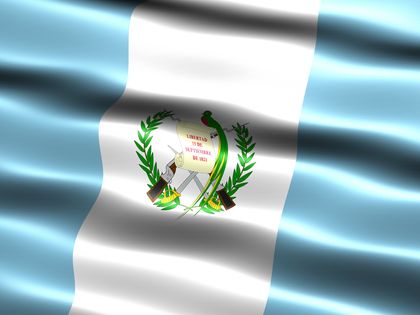Guatemala - Government

Constitutionally, the Guatemalan government is defined as democratic and representative, and the new constitution that took effect on 14 January 1986 reaffirms that definition. Since the 1950s, however, civil disorder has often prompted the suspension of constitutional guarantees.
Guatemala is a republic. The president, who must be a native-born lay person at least 40 years old, is elected by direct vote for a four-year term and may not be reelected. The constitution calls for a popularly elected vice president. The office of vice president provides a guarantee of presidential succession in case of the death or disability of the chief executive. There is a five-member court of constitutionality, which officially advises the president. Its members are appointed, one each by the Supreme Court, Congress, the president, the University of San Carlos, and the bar association. The president, who has broad powers, appoints and is assisted by a cabinet. The cabinet members traditionally resign at the end of each year so that the president may choose a new cabinet. The president, who is also commander-in-chief of the armed forces, appoints most military officers, the 22 governors, and other important public and diplomatic officials. Presidential duties include preserving public order, proposing laws, and making an annual presentation of the budget.
The unicameral National Congress has 113 members elected to four-year terms. Ninety-one members are elected from departmental constituencies, while 22 are elected by proportional representation. In districts with a population over 200,000, an additional deputy is elected to represent each additional 100,000 inhabitants or fraction exceeding 50,000. In addition, at-large representatives are elected by proportional representation from lists submitted by each political party. Under the constitution, Congress imposes taxes, enacts the national budget, declares war and makes peace, and ratifies treaties and conventions proposed by the president. Congress elects the president of the judiciary and judges of the Supreme Court and courts of appeals. The president may veto congressional bills, but Congress may override by a two-thirds vote. All public officials must declare the amount of their incomes and property holdings before assuming their posts and after they leave office.
Citizenship is acquired at the age of 18. Voting is obligatory for literate men and women 18 years of age and older and optional for nonliterate citizens.